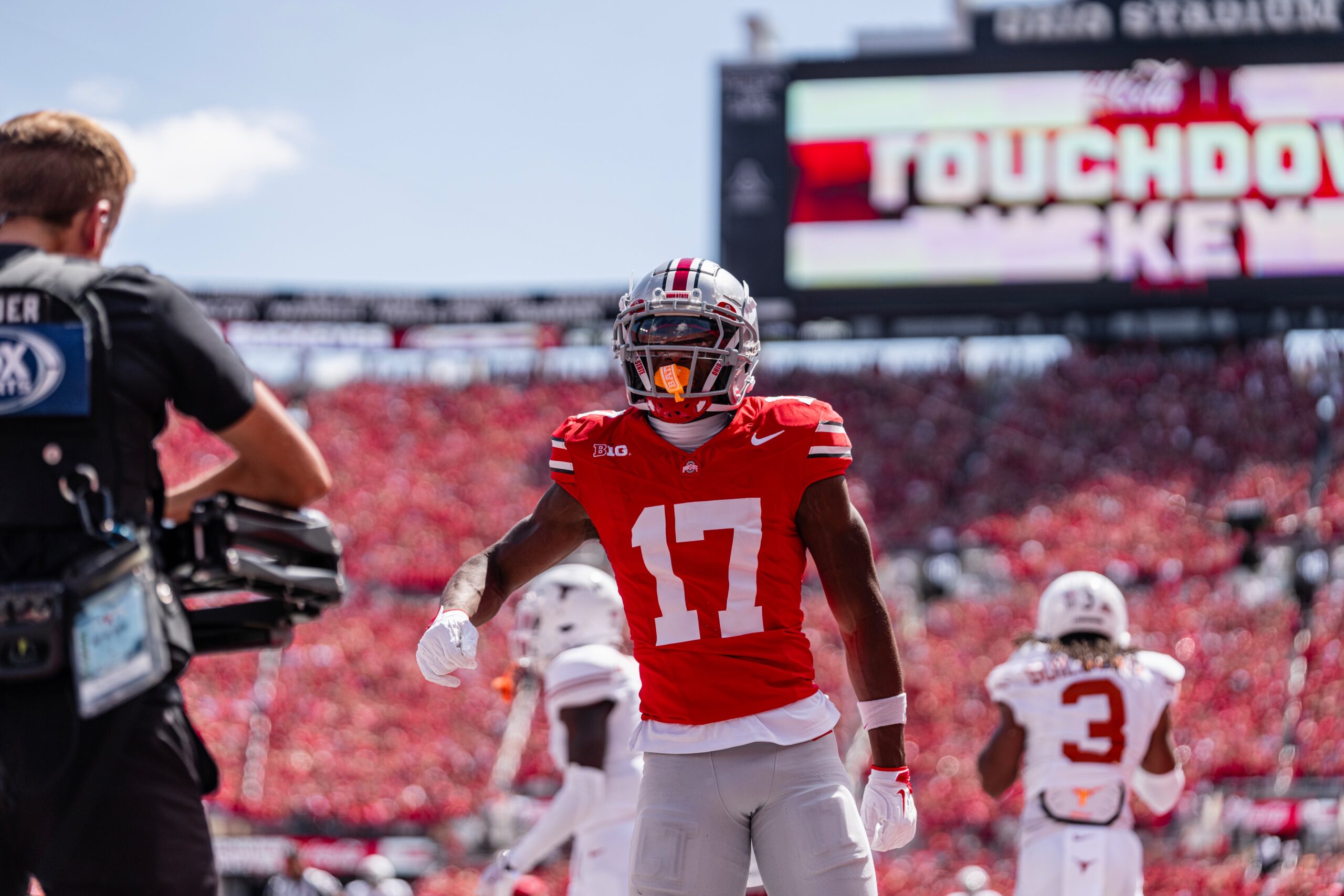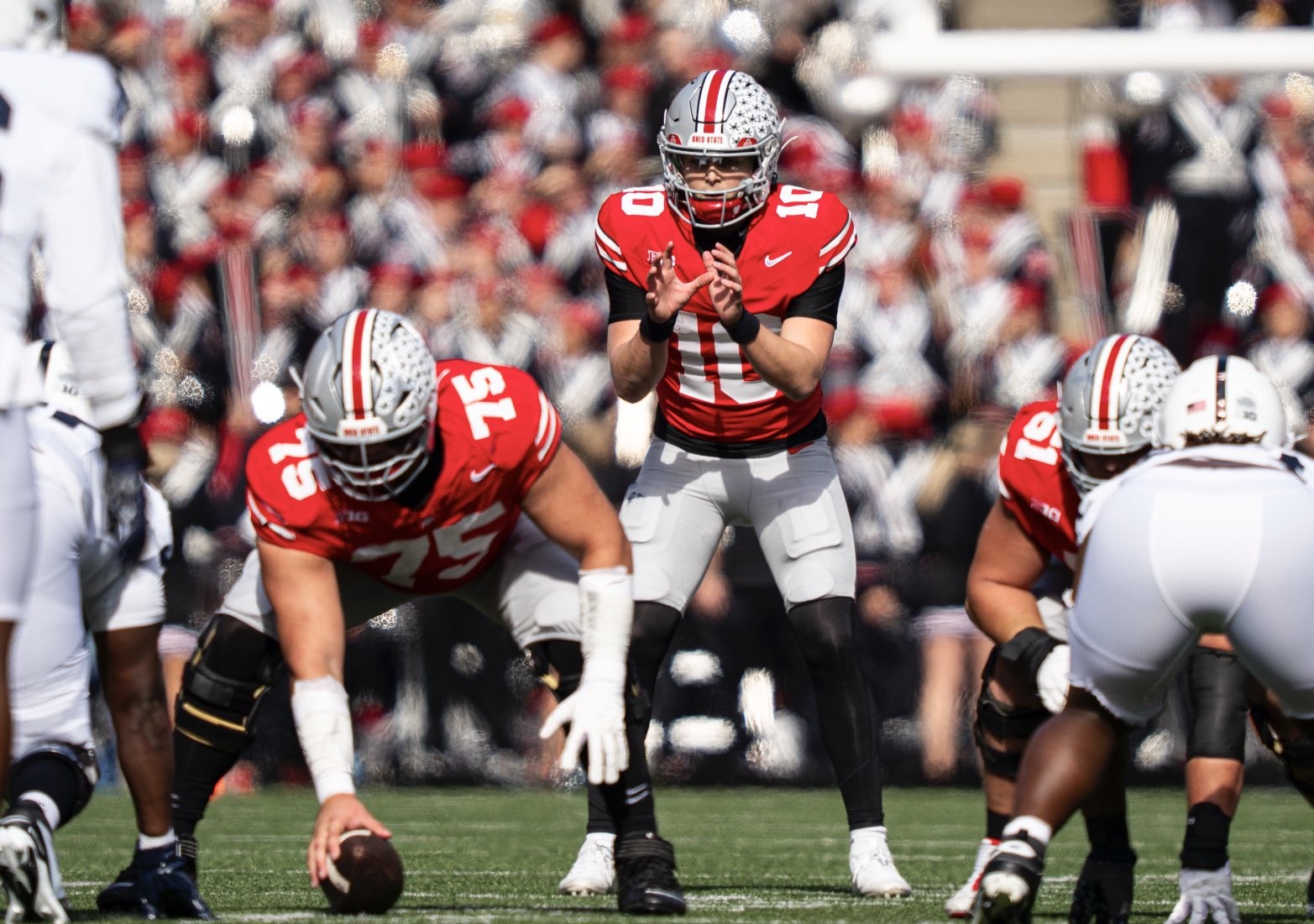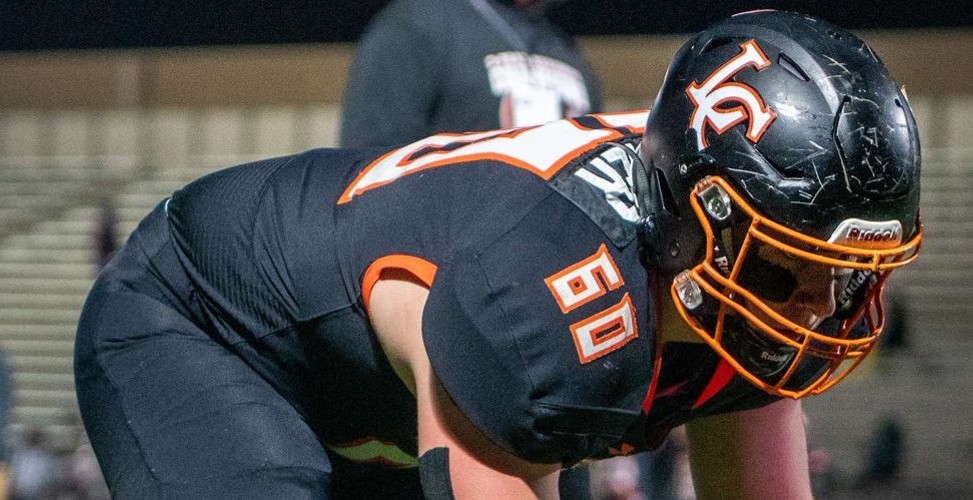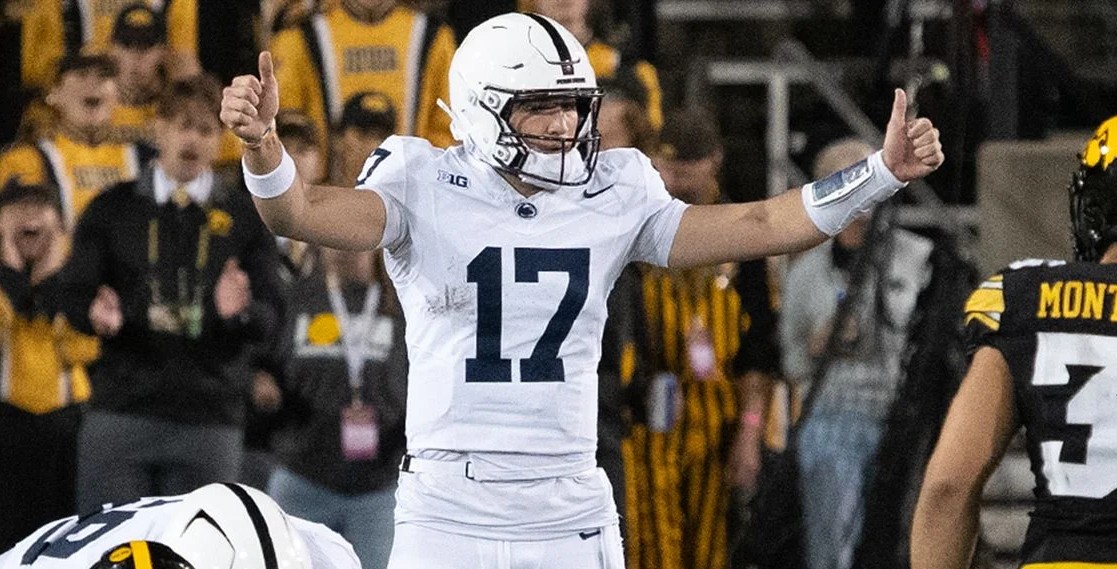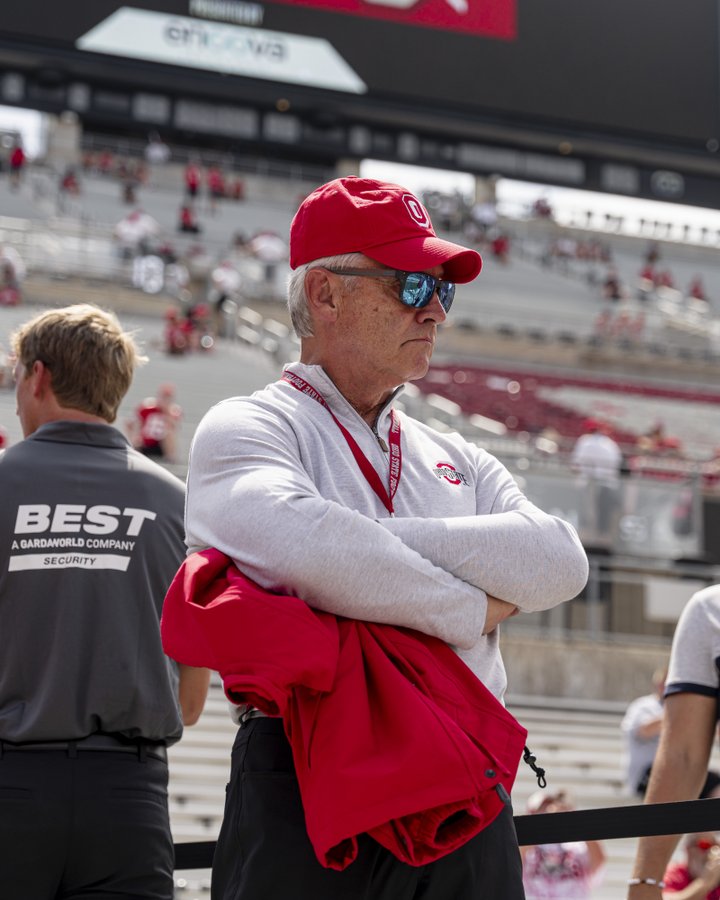
If you’re an Ohio State fan, the idea that the program’s 2010 season might be restored on paper feels like someone finally turning a spotlight back on a wound that never stopped aching. On a recent appearance on The Ryan Day Radio Show, Athletic Director Ross Bjork informed the public that this idea is reaching Ohio’s capitol hill: “I had to testify in front of a legislative committee at the (Ohio) state capitol, and I hadn’t heard about — there was actually a proposed state bill that would get those (wins) back. I heard about that,” Bjork said. He didn’t promise anything, but his tone was refreshingly candid: “It’s something, look, I think, given the climate, I think you have to at least ask the question. We haven’t really pursued a whole lot, but there are a few questions that we have asked. Who knows where it’ll go?”
That last line — who knows where it’ll go? — is the exact kind of opening every Buckeye fan wants to hear. Not a legal brief or a press release, but a real, human acknowledgment that maybe, finally, we can revisit what happened and how it was handled.
I reacted to Bjork’s comments on The OHIO Podcast, because this matters to the people who lived that season: the players, the families, and the fans who poured into the Shoe and watched the trophy raised after the Sugar Bowl. Bjork tried to frame it with a dose of perspective: “Those things are usually just a piece of paper,” he said, comparing the vacated wins to his experience at Ole Miss where “we still won the Sugar Bowl here at Ole Miss because everyone was there. We held up the trophy.”
Let’s be blunt — that line landed wrong for a lot of folks, and I said so on the podcast: “That’s incorrect. No, it’s more. It’s more than that. Ask the players who played on that 2010 team if it was just a piece of paper.” For the people who earned those victories on Saturdays, those wins are memories, statistics, career markers and, yes, part of a legacy. Paper or not, records matter in history, in coaching legacies, and in the way families tell their kids about those days.
Bjork and co-host Jim Lachey had a lighter moment when Lachey quipped about Jim Tressel — now lieutenant governor — being in the corner for this move. “He’s right there,” Bjork laughed. “We do have access to him.” Cue the grin from anyone who remembers Tressel-era championships and the conversations that would follow if those twelve wins were added back to the record books. If those wins return, Tressel’s career numbers change dramatically; he’d climb back to a triple-digit win total, and the historical ledger in Columbus would feel more complete.

Now, there are two angles to this that every fan should keep in mind. First: symbolism and memory. Even if the NCAA’s recordkeeping is the final word in some official sense, the university can — and in my view should — make a declarative statement about its own history. Bjork’s point about having “to at least ask the question” is exactly where we need to be. Asking is how things move from fan outrage to institutional action.
Second: strategy. Months ago I said Ross Bjork should come out and publicly say that unless comparable punishments were handed down to Michigan, Ohio State should consider reclaiming its record. That wasn’t because I wanted a headline — it was because of fairness and leverage. The climate around enforcement and accountability has shifted. If other programs have walked away with lighter consequences, why should the Buckeye legacy stay scarred on statute alone?

Some fans will want an immediate, fiery response — “Just reinstate them now!” — and I get it. Other folks will urge patience, legal caution, and PR awareness. What I don’t accept is doing nothing. Bjork’s willingness to have the conversation is a start. We should push the university to be bold, to take its history seriously, and to lead with transparency. If the answer ends up being “no” for legal reasons, at least we’ll have a public accounting of why. If the answer is “yes,” we’ll have corrected a scoreboard that’s long overdue.
Bottom line for Buckeye nation: those wins matter. Whether the NCAA’s records say otherwise, the players, coaches and fans lived the season. As I said on the podcast, “It’s time to reinstate those wins.” Ross Bjork has signaled he’s listening — now it’s on us to keep asking and to make sure the university follows through, not just with words but with a plan. After all, we’re talking about a season that built careers, memories and a legacy. That’s not just a piece of paper.


